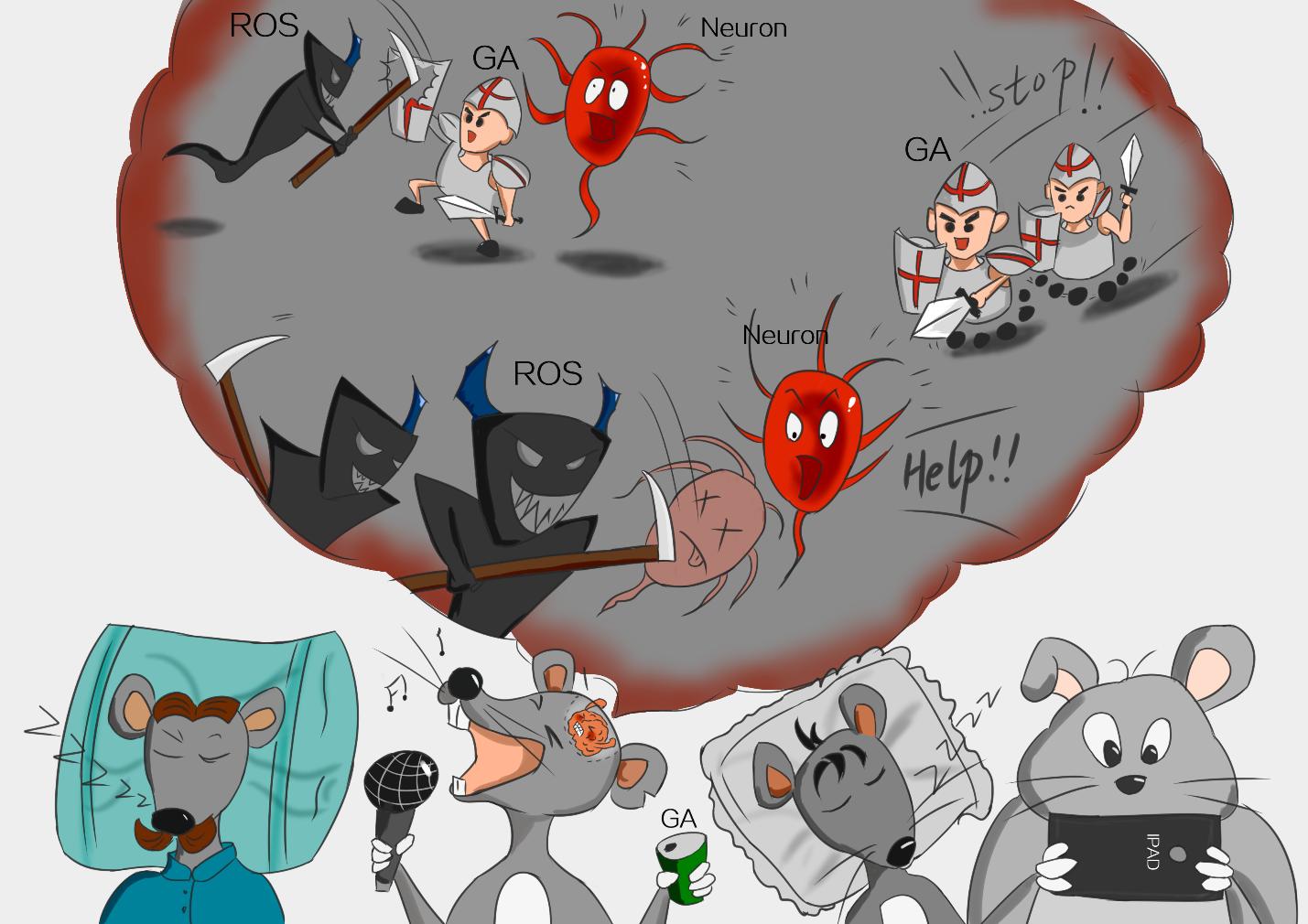Articles
Article Tools
Stats or Metrics
Article
Original Article
Exp Neurobiol 2023; 32(4): 285-301
Published online August 31, 2023
https://doi.org/10.5607/en23015
© The Korean Society for Brain and Neural Sciences
Gallic Acid Ameliorates Cognitive Impairment Caused by Sleep Deprivation through Antioxidant Effect
Xiaogang Pang1,2†, Yifan Xu3†, Shuoxin Xie1, Tianshu Zhang1, Lin Cong1, Yuchen Qi4, Lubing Liu2, Qingjun Li2, Mei Mo2, Guimei Wang2, Xiuwei Du2, Hui Shen1,5* and Yuanyuan Li1*
1Innovative Institute of Chinese Medicine and Pharmacy, Shandong University of Traditional Chinese Medicine, Jinan 250355, 2Experimental Center, Shandong University of Traditional Chinese Medicine, Jinan 250355, 3Department of Medicine, Shandong University of Traditional Chinese Medicine, Jinan 250355, 4School of Health, Shandong University of Traditional Chinese Medicine, Jinan 250355, 5Department of Cellular Biology, School of Basic Medicine, Tianjin Medical University, Tianjin 300070, China
Correspondence to: *To whom correspondence should be addressed.
Yuanyuan Li, TEL: 86-0531-89628574, FAX: 86-0531-89628565
e-mail: lyy05_2012@163.com
Hui Shen, TEL: 86-0531-89628566, FAX: 86-0531-89626566
e-mail: shenhui@tmu.edu.cn
†These authors contributed equally to this article.
This is an Open Access article distributed under the terms of the Creative Commons Attribution Non-Commercial License (http://creativecommons.org/licenses/by-nc/4.0) which permits unrestricted non-commercial use, distribution, and reproduction in any medium, provided the original work is properly cited.
Abstract
Sleep deprivation (SD) has a profound impact on the central nervous system, resulting in an array of mood disorders, including depression and anxiety. Despite this, the dynamic alterations in neuronal activity during sleep deprivation have not been extensively investigated. While some researchers propose that sleep deprivation diminishes neuronal activity, thereby leading to depression. Others argue that short-term sleep deprivation enhances neuronal activity and dendritic spine density, potentially yielding antidepressant effects. In this study, a two-photon microscope was utilized to examine the calcium transients of anterior cingulate cortex (ACC) neurons in awake SD mice in vivo at 24-hour intervals. It was observed that SD reduced the frequency and amplitude of Ca2+ transients while increasing the proportions of inactive neurons. Following the cessation of sleep deprivation, neuronal calcium transients demonstrated a gradual recovery. Moreover, whole-cell patch-clamp recordings revealed a significant decrease in the frequency of spontaneous excitatory post-synaptic current (sEPSC) after SD. The investigation also assessed several oxidative stress parameters, finding that sleep deprivation substantially elevated the level of malondialdehyde (MDA), while simultaneously decreasing the expression of Nuclear Factor erythroid 2-Related Factor 2 (Nrf2) and activities of Superoxide dismutase (SOD) in the ACC. Importantly, the administration of gallic acid (GA) notably mitigated the decline of calcium transients in ACC neurons. GA was also shown to alleviate oxidative stress in the brain and improve cognitive impairment caused by sleep deprivation. These findings indicate that the calcium transients of ACC neurons experience a continuous decline during sleep deprivation, a process that is reversible. GA may serve as a potential candidate agent for the prevention and treatment of cognitive impairment induced by sleep deprivation.
Graphical Abstract

Keywords: Sleep deprivation, Gallic acid, Oxidative stress, ACC


